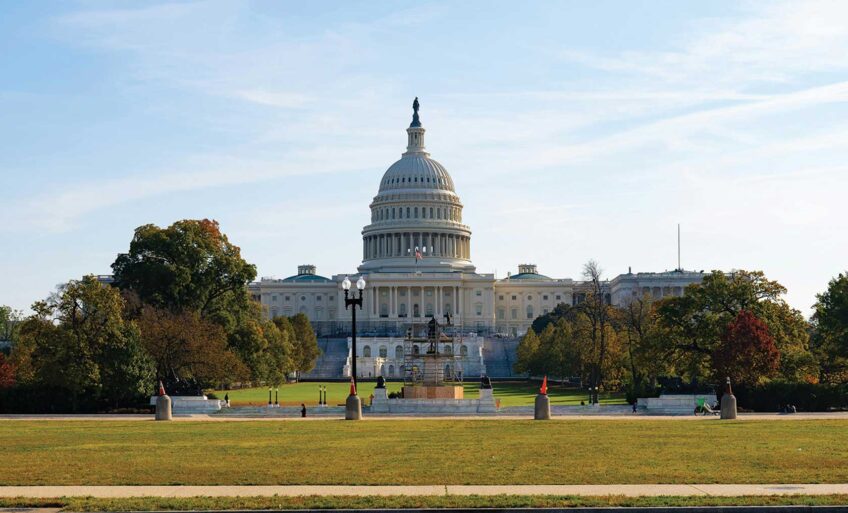An absurd litmus test for black presidential candidates
The recent controversy regarding Sen. Barack Obama’s 20-year relationship with his pastor, mentor and spiritual adviser, Dr. Jeremiah Wright, has been instructive. To this point, most African Americans were skeptical that a black president could be elected in our lifetimes. We thought the requirements were nearly insurmountable: Build a national political organization; raise tens, if not hundreds of millions of dollars; possess top-notch academic and political credentials; and appeal to a substantial number of white voters.
Obama has met these requirements and more, giving us all hope that perhaps this goal is attainable after all. But recent events have revealed an obstacle that is may be difficult to surmount: The litmus test that says a black candidate must be completely disconnected from any black person who may be somewhat controversial. He must not only be completely cut off from this individual, but the candidate must prove it by denouncing, repudiating and disavowing not only the person’s utterances, but also the person himself.
Apparently, to some it doesn’t matter that Obama has an Ivy League education from Harvard Law School, was president of the Law Review, served his nation as a community organizer, taught constitutional law, and has served as a state senator and now a U.S. Senator. It doesn’t matter that he’s led an exemplary adult life; married a woman who possesses the same Ivy League credentials as he does; has two beautiful daughters and is a dedicated husband and father. It doesn’t matter that Obama has run one of the best political campaigns we’ve seen, refusing to resort to mudslinging and gutter politics, and bringing millions of new voters into the Democratic Party.
What really matters, apparently, is that he has a long-time friend, Wright, who spent six years in the Marines serving his country and is known nationwide as a biblical scholar, but has made some controversial statements from the pulpit.
The problem with this absurd litmus test is that it eliminates virtually any African American who has excelled and who could, therefore, be on a path to the presidency.
This litmus test denies the very history of our nation and forces any potential black candidate to completely separate himself from the African American community. By this standard, the candidate wouldn’t be black at all — just a person who happens to have more melanin than most, but whose views and perspective reflect the majority population. These are the kinds of candidates Republicans seem to like, as evidenced by the African Americans the party promotes.
What makes this litmus test challenging is our nation’s post-civil rights history, which Obama pointed out in his extraordinary recent speech. The activists of the civil rights movement were primarily college students and community leaders who challenged the American government to recognize clacks as full citizens. These activists — including Rev. Wright — faced violence and the threat of death by extremist groups and complicit local law enforcement officials on a regular basis. Many spent days in jail, became radical — understandably so — and have emotional scars. Many still possess some of the anger from those times and many of them now serve in positions in our government, which is a path to higher political office. Most of the black members of Congress who are over the age of 60 were active in the civil rights movement. The same is true for blacks elected to state government.
These products of the 1960s are now in their 60s, but the generation after them — their children — is really the one that benefited from their efforts to right the wrongs of America’s past. Obama represents the next generation, but he has been mentored by those who actually went before him, such as Rev. Wright and Illinois Senate President Emil Jones. Interestingly, Wright, who has been demonized as racist by the media and Republican zealots, was scheduled to receive an award last week from the divinity school at Texas Christian University, a predominantly white religious institution. Wright elected not to attend the panel discussion where he was to receive the honor, citing security concerns.
There are many well-educated African Americans who have relatives and friends who were connected with movement leaders, members of the Black Panther Party, or even the Nation of Islam. Attending an Ivy League institution can actually produce anxiety for some African Americans who may have been ambivalent before.
The 1995 Million Man March in Washington, D.C., which was spearheaded by Nation of Islam Minister Louis Farrakhan, was attended by hundreds of thousands of black men from all educational and socio-economic backgrounds. Are these men, as well as their friends and relatives, now barred from seeking high office? In the future, will they be subjected to video clips, replayed ad nauseum by the mainstream media, of them clapping as Farrakhan speaks from the podium?
It is inconceivable that any credible person who has the best interests of the African American community at heart would denounce, repudiate and reject the stalwart individuals who fought, and continue to fight, on the front lines for freedom. They may not agree with all of their statements, but these warriors have given too much of themselves to be rejected by the community which benefited from their work.
Gwen Richardson is an entrepreneur and author based in Houston.






